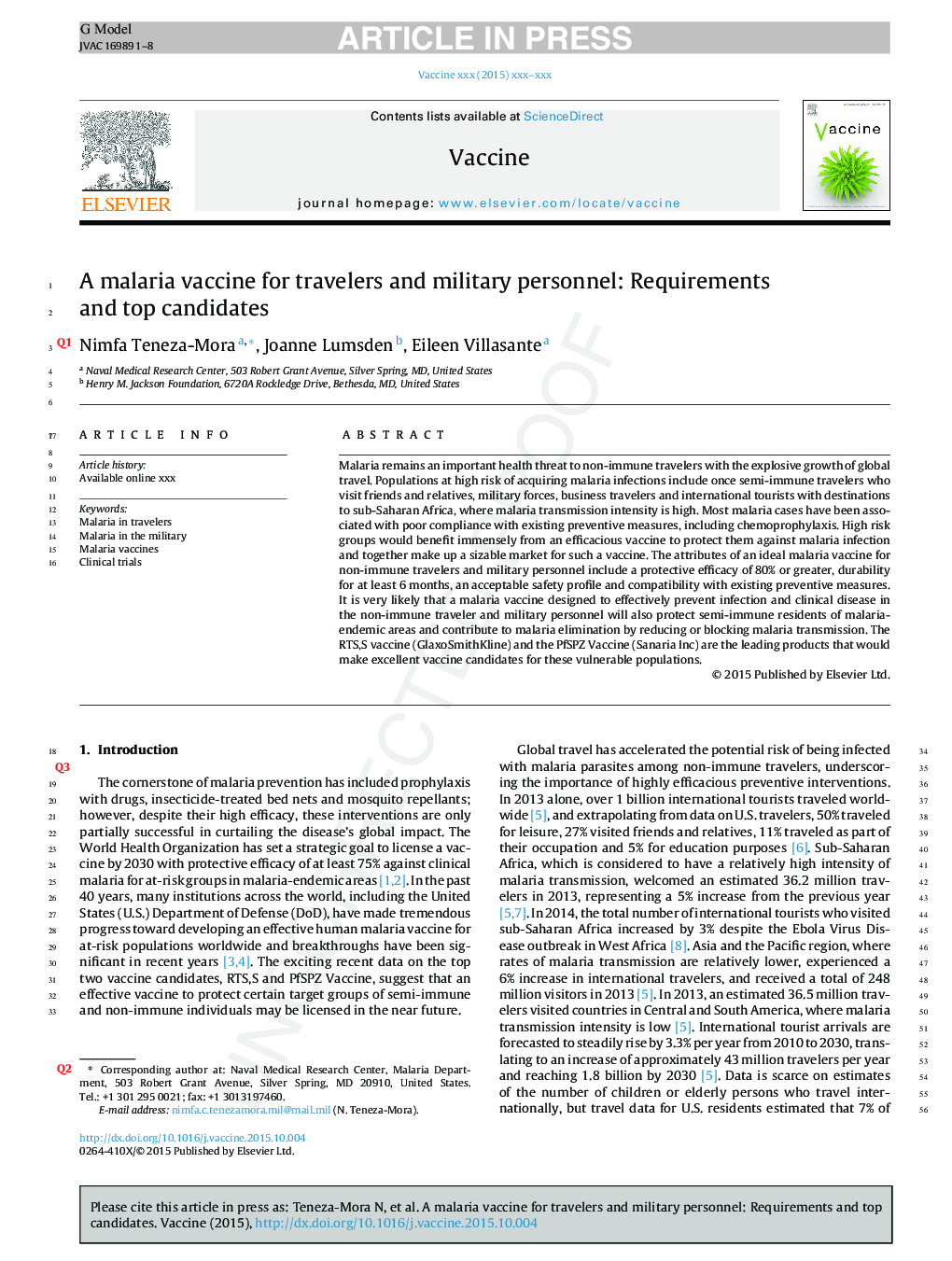| Article ID | Journal | Published Year | Pages | File Type |
|---|---|---|---|---|
| 10963367 | Vaccine | 2015 | 8 Pages |
Abstract
Malaria remains an important health threat to non-immune travelers with the explosive growth of global travel. Populations at high risk of acquiring malaria infections include once semi-immune travelers who visit friends and relatives, military forces, business travelers and international tourists with destinations to sub-Saharan Africa, where malaria transmission intensity is high. Most malaria cases have been associated with poor compliance with existing preventive measures, including chemoprophylaxis. High risk groups would benefit immensely from an efficacious vaccine to protect them against malaria infection and together make up a sizable market for such a vaccine. The attributes of an ideal malaria vaccine for non-immune travelers and military personnel include a protective efficacy of 80% or greater, durability for at least 6 months, an acceptable safety profile and compatibility with existing preventive measures. It is very likely that a malaria vaccine designed to effectively prevent infection and clinical disease in the non-immune traveler and military personnel will also protect semi-immune residents of malaria-endemic areas and contribute to malaria elimination by reducing or blocking malaria transmission. The RTS,S vaccine (GlaxoSmithKline) and the PfSPZ Vaccine (Sanaria Inc) are the leading products that would make excellent vaccine candidates for these vulnerable populations.
Keywords
Related Topics
Life Sciences
Immunology and Microbiology
Immunology
Authors
Nimfa Teneza-Mora, Joanne Lumsden, Eileen Villasante,
